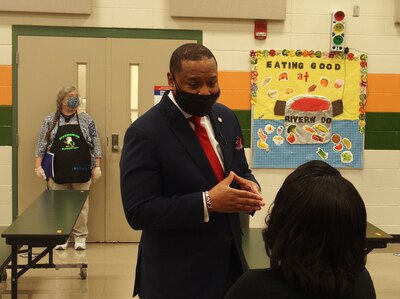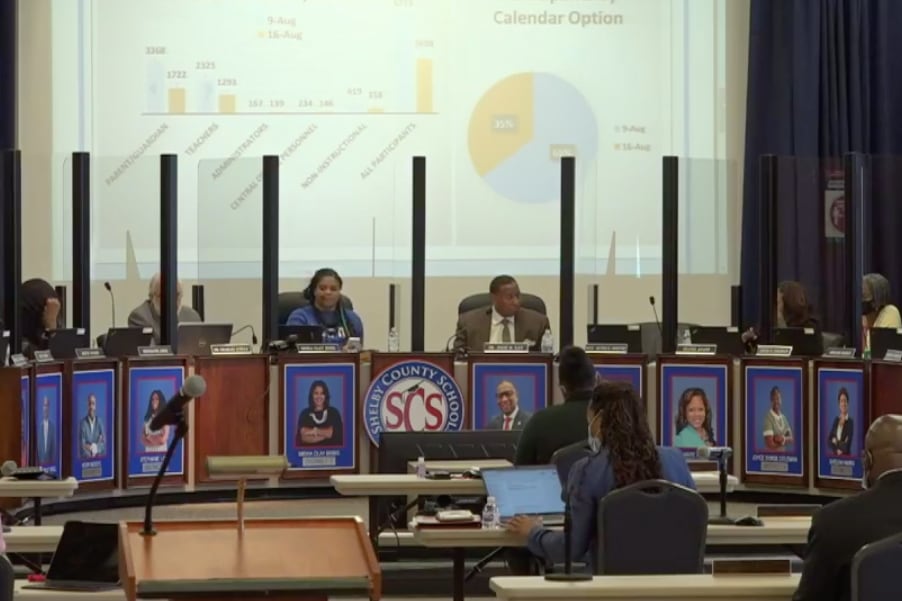Shelby County Schools leaders want to return to their regular school year calendar after a year of pandemic related changes — an option supported by most parents and teachers in a district survey.
The 2021-22 school year would begin Aug. 9 and end the Friday before Memorial Day under a proposal Superintendent Joris Ray presented to school board members Tuesday evening.
The proposed calendar means the upcoming summer break will be three weeks shorter than normal, but ensures that fall semester exams wrap up before winter break starts on Dec. 20. School board members are scheduled to vote on the calendar during their meeting Tuesday, April 6.
For the last year, policymakers and families have been focused on trying to stay well and help students learn. Discussions about the school calendar are an early sign of a desire by teachers, students, families, and district officials to return to normalcy even as effects of the pandemic linger.
District leaders started this school year three weeks late because of COVID-19 and to allow more time to distribute devices for virtual learning. The last day of school this year is June 16.
Because a new summer program required by state law is slated to start in early July and run for four weeks, participating teachers would only have one weekend off, and students would have only one week off before going back to school in August.
“It’s nonstop,” said board member Stephanie Love. “I understand that it’s give and take, but we’re going to have to show our teachers some grace somewhere down the line.”
The Tennessee Department of Education allowed the district to shorten its summer program from six weeks to four, Ray said.

Normal Memphis summer programs need about 1,800 teachers, said Shawn Page, the district’s chief of academic operations and school support. District officials expect needing double that number to instruct up to 30,000 eligible students.
Ray acknowledged the summer is “a bit of a crunch.”
But in conversations with small groups of teachers about the calendar, Ray said they were more concerned about making sure next year would end by Memorial Day than about a shorter summer. Starting Aug. 9 allowed them to do that.
Earlier this month, the district surveyed teachers, parents, administrators, central office staff, and other district employees. When offered two calendar options, about 64% of teachers and 66% of parents preferred the one with an earlier start date. About half of the 10,000 participants were parents, a third were teachers, and the rest were other employees.
Given teachers’ desires to end the year by Memorial Day and keep weeklong breaks for fall, Thanksgiving, and spring, board member Kevin Woods said this option was the best.
“Knowing that we have to say yes to all the other things that teachers want puts us into quite a box for formulating the calendar,” he said.
Board member Michelle McKissack said she hopes to see more creative solutions in the future such as starting the school year a little later by cutting a few days from Thanksgiving break and switching to virtual days so people could travel.







